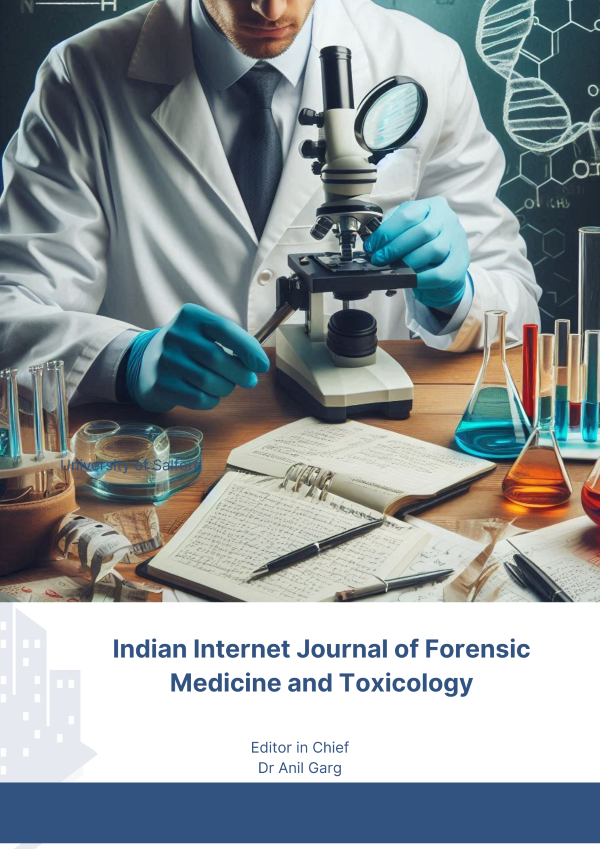Case Report of Neurocardiogenic Vasovagal Shock: “A Medicolegal Mas- querade”
DOI:
https://doi.org/10.48165/iijfmt.2024.2.2.6Keywords:
Autopsy, Neurocardiogenic Vasovagal Shock, Trauma, carotid sinusAbstract
Autopsy plays a significant role in determining the cause of both natural and
unnatural deaths. Identifying the cause of death becomes more challenging when it
occurs suddenly and rapidly, particularly in cases involving trauma, whether known
or unknown, or in a case of concealed underlying pathology. The role of cardiac
inhibitory reflex as a potential cause of death remains debatable. This case report
describes a fatal incident of such nature. The reasons for such neurocardiogenic
vasovagal shock can be attributed to sudden shock or strong emotions and injury
to specific areas such as the carotid sinus, various plexuses, testicles, and serous
membranes. Even minor trauma to these areas can lead to sudden death. This case
report describes a 43-year-old male who was assaulted by his neighbour as a result
of a long-standing feud and died almost immediately after minor trauma to the neck
and chest.
Downloads
References
Capilupi MJ, Kerath SM, Becker LB. Vagus Nerve Stimulation and the Cardiovascular System. Cold Spring Harb Perspect Med. 2020 Feb 3;134173.
Krediet CT, van Dijk N, Linzer M, van Lieshout JJ, Wieling W. Management of vasovagal syncope: controlling or aborting
faints by leg crossing and muscle tensing. Circulation 2002; 106:1684-9.
Lu CC, Diedrich A, Tung CS, Paranjape SY, Harris PA, Byrne DW, et al. Water ingestion as prophylaxis against syncope. Circula tion 2003; 108:2660-5.
AmericanHeartAssociation.Syncope. https://www.heart.org/en/ health topics/arrhythmia/symptoms-diagnosis--monitor ing-of-arrhythmia/syncope fainting (accessed 03 October 2024).
Kapoor WN. Syncope. N Engl J Med 2000; 343:1856-62. Chen-Scarabelli C, Scarabelli TM. Neurocardiogenic syncope. BMJ. 2004 Aug 7;329(7461):336-41.
Kumar A, Jakhar JK, Jain P, Dhattarwal SK, Singh S. Unusual mode of death in case of cold water immersion. Res J Forensic Sci. 2018;6(1):7–9.
Schrag B, Mangin P, Vaucher P, Bollmann MD. Death caused by cardioinhibitory reflex: what experts believe. Am J Forensic Med Pathol. 2012 Mar;33(1):9-12.
Suárez-Peñaranda JM, Cordeiro C, Rodríguez-Calvo M, Vieira DN, Muñoz-Barús JI. Cardiac inhibitory reflex as a cause/ mechanism of death. J Forensic Sci. 2013 Nov;58(6):1644-7.
Aggarwal A: Textbook of Forensic Medicine & Toxicology;2nd Edition New Delhi: Avichal Publishing Company; 2021.p169- 170.

